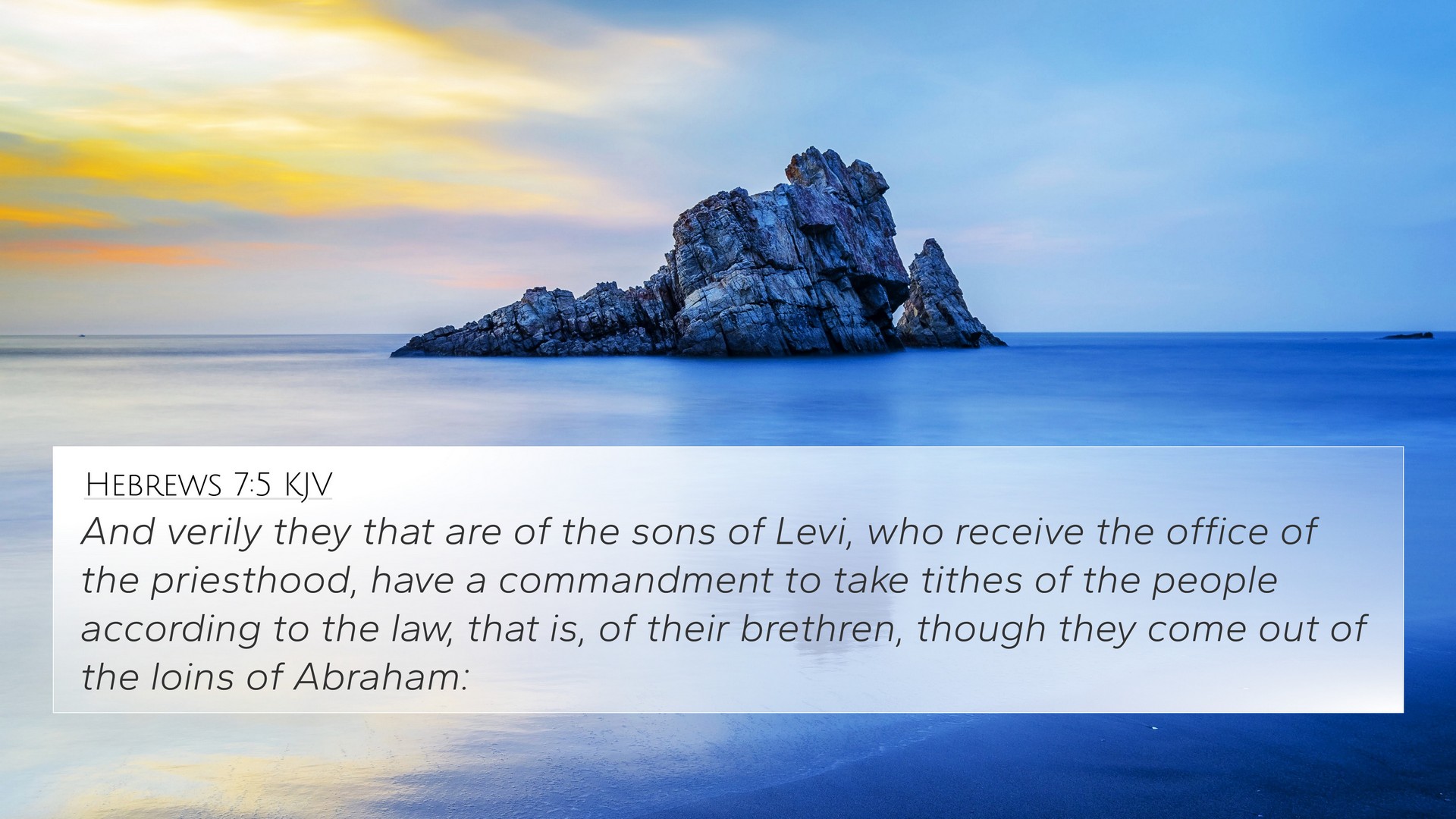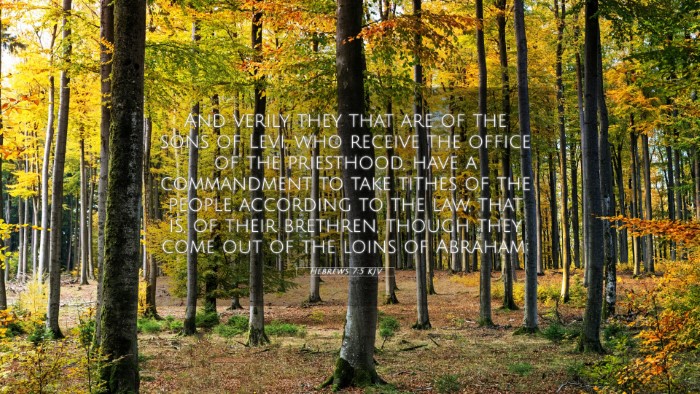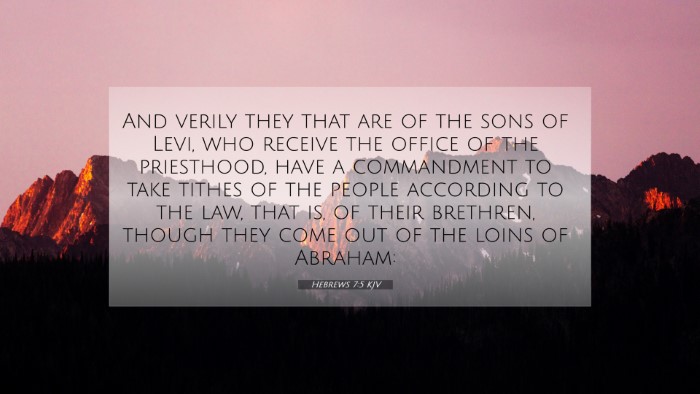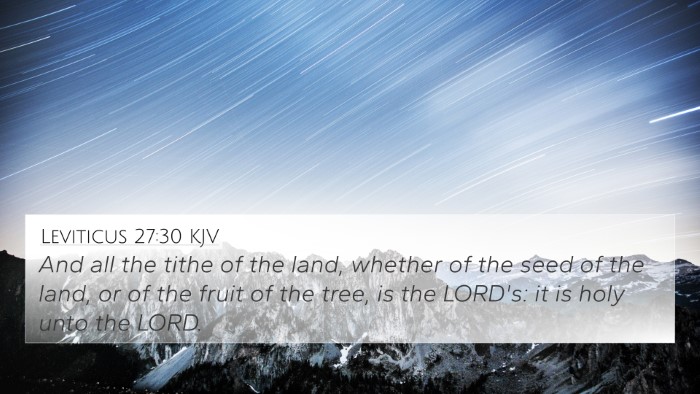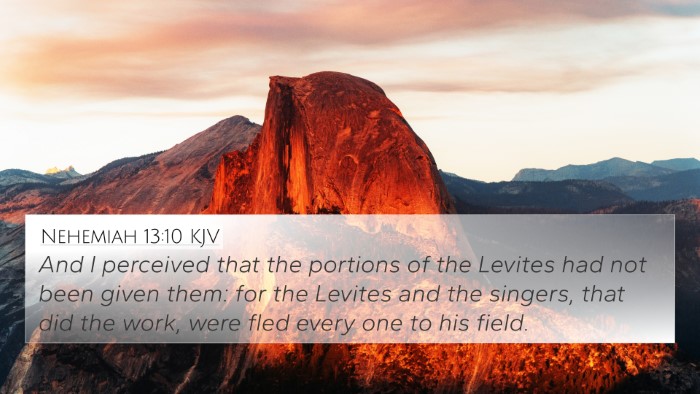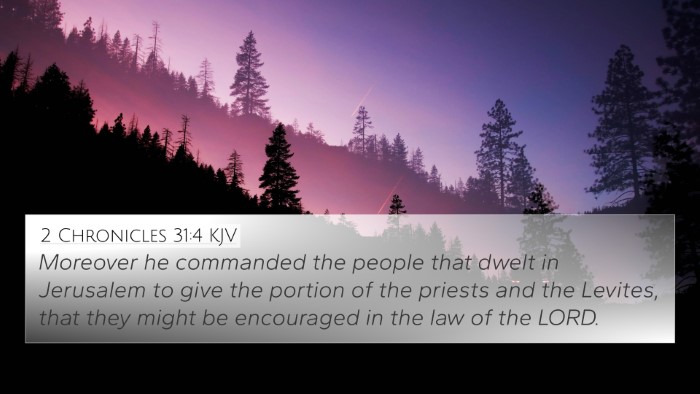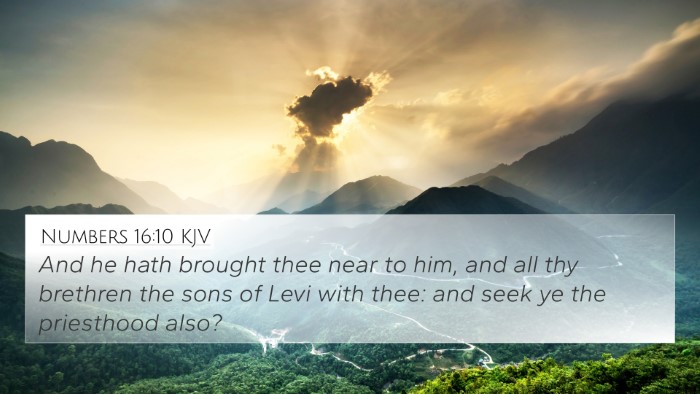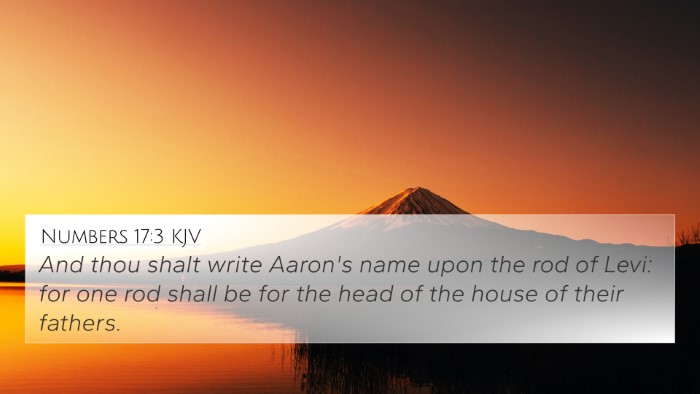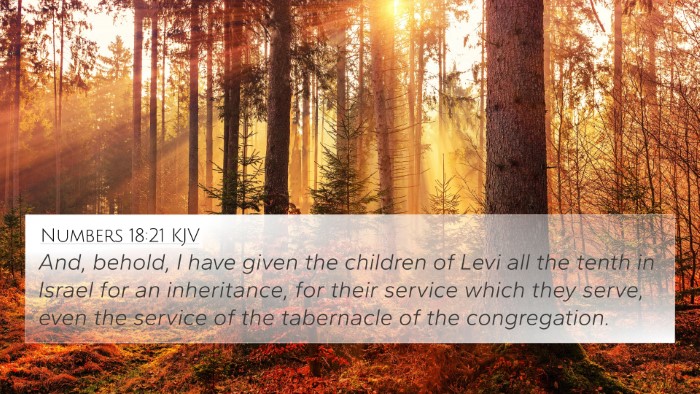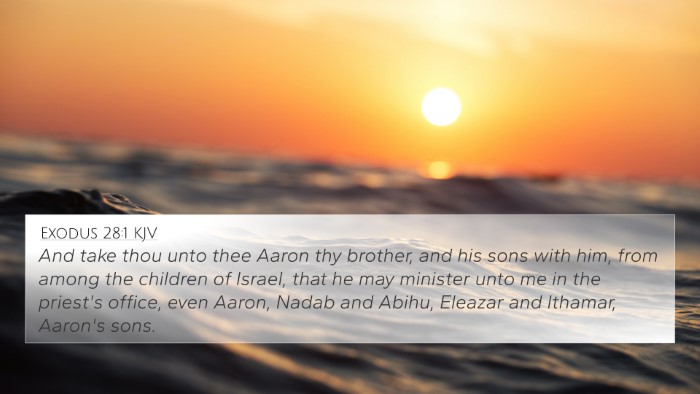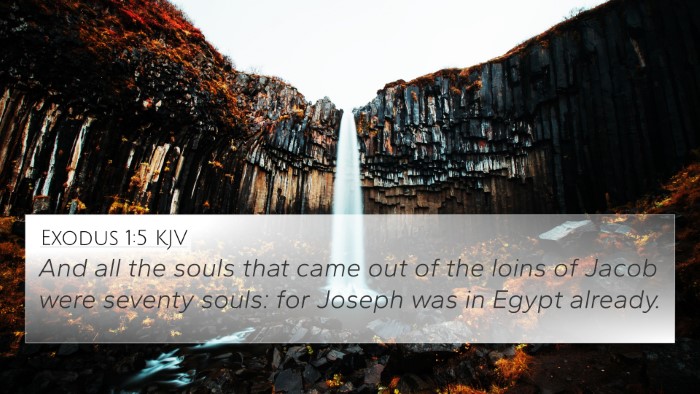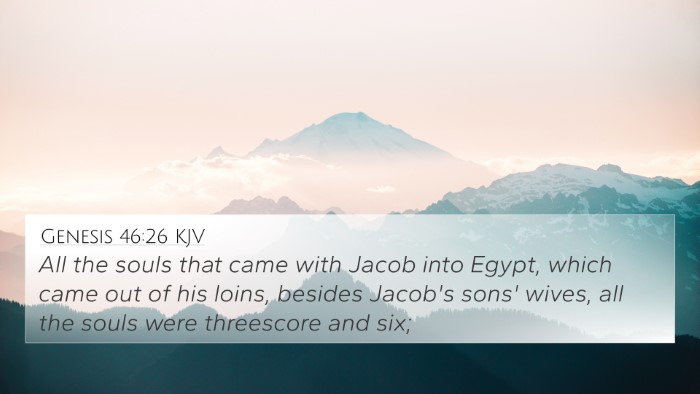Understanding Hebrews 7:5
Hebrews 7:5 discusses the function of the Levitical priests in relation to the offerings and tithes presented in the Old Testament. This verse signals a significant aspect of the priestly order established under the Law of Moses, emphasizing not only the practice of tithing but also its theological implications within the broader narrative of Scripture.
Key Insights from Public Domain Commentaries
-
Matthew Henry's Commentary:
Henry emphasizes that the Levitical priests received tithes from the people, establishing a system where these priests acted on behalf of God to mediate between Him and the people. This interaction illustrates God's order and structure in worship, highlighting the necessity and obligation of the Levitical lineage in the service of God. Henry also notes that the priestly role served to maintain the covenant relationship between God and Israel, reminding believers of God's holiness and their need for mediation.
-
Albert Barnes' Notes:
Barnes focuses on the implications of the priesthood and its connection to the Mosaic Law. He argues that the obligation for tithes was not merely a ceremonial act but one filled with spiritual significance, suggesting that giving tithes relates to one's recognition of God's sovereignty. He draws attention to the continuity of this practice and how it paves the way for understanding Christ's ultimate priesthood. Barnes highlights that Christ’s priesthood surpasses that of the Levites, as He becomes the mediator for a new covenant, thus transforming the understanding of sacrifice and offering.
-
Adam Clarke's Commentary:
Clarke provides a historical perspective, noting the significance of the Levitical order in the religious life of Israel. He underscores that the practice of giving tithes was instituted for the support of the Levites, who had no inheritance like the other tribes. Clarke points out that this was crucial for the maintenance of the temple and the community's worship practices. He also recognizes the typological significance of these priestly duties, suggesting that their purpose foreshadows the ultimate high priest, Jesus Christ, and His redemptive work.
Cross-References and Thematic Connections
Exploring Hebrews 7:5 in context requires understanding its connections to other Scripture passages. Here are several related Bible verses that present connections between the Biblical texts and themes discussed:
- Genesis 14:20: References the practice of Abram giving a tithe to Melchizedek, showing an early model of tithing.
- Numbers 18:21: Details God’s instruction to the Levites on receiving tithes from the Israelites.
- Deuteronomy 14:22-29: Encourages the Israelites to tithe and specifies how it should be done, linking to their spiritual and community responsibilities.
- 1 Peter 2:9: References the priesthood of all believers, suggesting a shift from the Levitical priesthood to a more inclusive understanding of priesthood in Christ.
- Hebrews 5:6: Mentions Christ as a priest in the order of Melchizedek, directly connecting Him to the priestly function discussed in Hebrews 7:5.
- Hebrews 7:11: Questions the perfection that came through the Levitical priesthood compared to that of Christ.
- Malachi 3:10: Challenges God's people to bring the whole tithe to the storehouse, reinforcing the significance of tithing within the covenant community.
Conclusions on Cross-Referencing
Understanding Hebrews 7:5 through the lens of cross-referencing not only enriches its meaning but highlights the continuity and development of themes throughout Scripture. By using tools for Bible cross-referencing, believers can identify deeper connections and enhance their study of God’s Word. By exploring the thematic connections in passages regarding tithing, priesthood, and covenant, one can gain insight into the redemptive narrative culminating in Jesus Christ, the ultimate High Priest.
Further Study and Resources
For those interested in exploring the connections between Bible verses further, consider utilizing Bible concordances and cross-reference guides. These resources can provide invaluable assistance in identifying and analyzing similar themes across Scripture. A study of links between the Prophets and the Apostolic teachings, as well as the relationship between the Old and New Testaments, can deepen one's understanding of the entire counsel of God.
